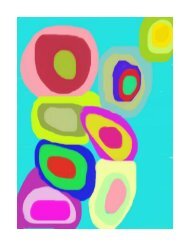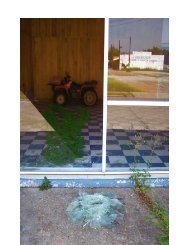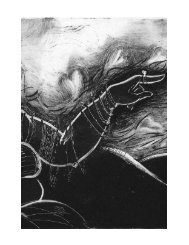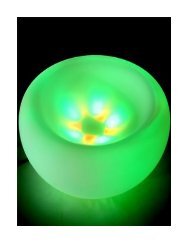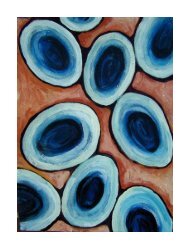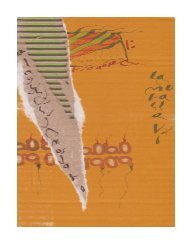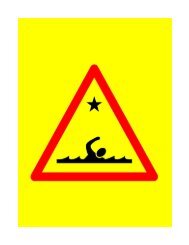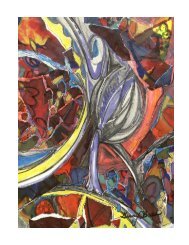Commentaries on Bob Cobbing - The Argotist Online
Commentaries on Bob Cobbing - The Argotist Online
Commentaries on Bob Cobbing - The Argotist Online
Create successful ePaper yourself
Turn your PDF publications into a flip-book with our unique Google optimized e-Paper software.
I am up for “aurally-emphatic”, except that it too is orally-ungainly, + olfactorily—and tactilely—<br />
etc... that’s 4 senses out of 5... oh yes—Here’s my new book of poetry. Would you like to lick it?<br />
I am very interested by associati<strong>on</strong>s that I certainly feel between the text and expressive and<br />
resp<strong>on</strong>sive gesture and movement: body as readable shape, line as physical movement, page as<br />
room and so <strong>on</strong>.<br />
I was impressed by Robert Sheppard’s work presented with dancers a few years back, although<br />
that seemed to be a case of a poet reading and a dancer dancing at the same time. I feel I might<br />
have followed that up for myself. I have, increasingly I think, used gesture in my performance; but<br />
there’s a l<strong>on</strong>g way to go.<br />
It’s a pity that touch screens have not become more popular. I’d be much more interested in<br />
offering you the chance to point to places <strong>on</strong> your screen than I am in getting you to click there<br />
with a sophisticated flick of the wrist, the rest of the body hardly moving. [When, earlier this year,<br />
I referred to the use of a touch screen as a gestural interacti<strong>on</strong>, in an email exchange, I mistyped<br />
and spoke of ‘getting you to lick <strong>on</strong> the screen’; and I may follow that up at some point in an<br />
installati<strong>on</strong>, if I can think my way round the hygiene problems.]<br />
Going bey<strong>on</strong>d the linear is something which happens again and again. It is not, therefore,<br />
something happening for the first time at the end of the end of the twentieth century al<strong>on</strong>g with<br />
mobile ph<strong>on</strong>es, the commercialisati<strong>on</strong> of the Internet and the pill for men. History isn’t linear.<br />
<strong>The</strong> visual text is the text that is not, or is less, cleaned up, rati<strong>on</strong>alised, standardised, made<br />
ungraphic, et cetera... But this is my perspective from where I believe we are now.<br />
I am not saying that the visual is prior to the linear. I expect that, chr<strong>on</strong>ologically, the linear<br />
precedes or sometimes precedes the alinear.<br />
In this c<strong>on</strong>text, I d<strong>on</strong>’t think that it matters.<br />
I do not see what <strong>Cobbing</strong> is doing has anything to do with c<strong>on</strong>cepts such as ur-language. <strong>The</strong><br />
visual text is an attempt at a whole resp<strong>on</strong>se. It isn’t, therefore, that the visual text is a special<br />
case, a variati<strong>on</strong> from the norm of the linear.<br />
Perhaps, when it is necessary to denote <strong>on</strong>e’s linear poetry as distinct from the visual, the term<br />
“lineated poetry” might be better, indicating that it is writing to which some<strong>on</strong>e has taken a<br />
physical limitati<strong>on</strong>.<br />
One has to be trained to write in straight lines; and writing paper often comes with straight lines<br />
<strong>on</strong> it. This indicates a n<strong>on</strong>-linear tendency; although that is not necessarily an indicati<strong>on</strong> of<br />
priority, <strong>on</strong>ly that linearity is a cultural opti<strong>on</strong>.<br />
Perhaps, however, that linearity affects how we structure our writing.<br />
Perversely, just regarding lined paper or the word-wrapping word-processor as a recording



